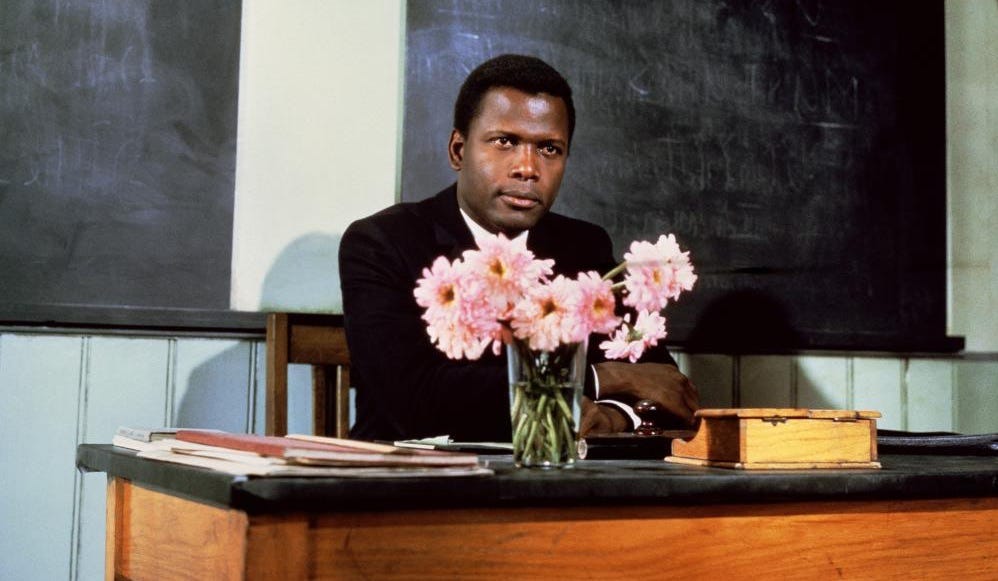Should 'Spider-Man: No Way Home' Be in the Best Picture Race?
Plus: RIP, Sidney Poitier.
There’s some discussion about whether or not Spider-Man: No Way Home should be included in the best picture mix at this year’s Oscars ceremony. Variety’s Owen Gleiberman makes the crassest case for its inclusion here:
Yes, I hated “Spider-Man: No Way Home.” It’s a movie that I’m a total annoying curmudgeonly naysayer about. … Now, though, there’s a larger reason to nominate “Spider-Man: No Way Home.” The Oscars are on life support, or at least they’re heading there. They need mainstream cred; going forward, it’s nothing less than the oxygen that’s going to allow them to survive.
Whenever this argument gets made, it’s presented in strictly utilitarian, box-office-begets-ratings terms. If you want an Academy Awards telecast that wins more eyeballs than it loses, you’re going to have to nominate some of the movies that win eyeballs. I don’t disagree with that argument, and in a sense it’s the one I’m making. But this isn’t simply about numbers. It’s about a perception that drives the numbers.
In the New York Times, Kyle Buchanan makes a similar point: as presumed favorites like West Side Story and Belfast founder at the box office and fears of the show’s growing irrelevance mount, eyes turn to the $1.39 billion (and counting!) behemoth.
I don’t think “it made a lot of money” is a particularly good reason to nominate something for best picture, and I don’t think “we need to nominate a movie that made a lot of money to save the show writ large” is a much better reason. Better that the awards diminish and go into the west like so many elves before them than pander for eyeballs.
That said, I don’t think “that’s what the money is for” is, necessarily, a good rejoinder to No Way Home partisans. Lots of popular movies have been Oscar darlings! If Black Panther or Avatar or Joker can get a best picture nomination, there’s no reason No Way Home can’t. Indeed, the whole point of expanding the number of best picture nominees from five to as many as ten in the wake of The Dark Knight getting snubbed was to try and open up some more room for popular movies that are also very good. (That the expansion mostly resulted in more of the same—films beloved by critics and artists but mostly ignored by audiences—nabbing noms is an example of the law of unintended consequences we all should’ve seen coming.)
The Oscars are less a measure of objective quality than an industry awards show designed to show off what the industry thinks of itself. If the industry thinks of itself as a place where well-liked, well-reviewed, and well-attended movies like Spider-Man: No Way Home are worth championing alongside excellent, but less popular, fare … well, that’s not the worst thing in the world.
RIP Sidney Poitier
As I was writing this newsletter, word broke that Sidney Poitier had died. There’s little I can say about Poitier that others can’t say better: he was the first black man to win best actor at the Oscars, a Hollywood icon, a major civil rights figure, and a great hero to many in the industry and the world writ large. He lived a good, and Good, life. He will be missed.
If you want to understand why his career is so important within the context of Hollywood and American race relations in general, you really have to read Colorization: One Hundred Years of Black Films in a White World, by Wil Haygood. I talked to Wil for The Bulwark Goes to Hollywood and we discussed Poitier a bit, but you should read the whole book. Mark Harris’s Pictures at a Revolution, in part about the making and release of In the Heat of the Night, is also worth checking out.
And if you just want to watch Poitier work, I’d recommend checking out where he’s available on the aptly named site JustWatch.com.
Links!
Sidney Poitier wasn’t the only giant we lost this week: Director, author, and actor Peter Bogdanovich died as well. Bill Ryan wrote a lovely appreciation of the man and his work, paying special attention to the early feature starring Boris Karloff he made for Roger Corman, Targets.
As I note in my review, Licorice Pizza cements Paul Thomas Anderson’s status as our premier director of romantic comedies.
The funniest story of the week, by far, was the revelation that Film Twitter broke J.D. Vance’s brain.
On The Bulwark Goes to Hollywood, I interviewed Phil Gelatt about The Spine of Night, which he cowrote and co-directed with Morgan Galen King, as well as his work on Netflix’s hit series Love, Death + Robots and the state of adult animation in general.
Over at Across the Movie Aisle, Alyssa, Peter, and I discussed whether Norman Mailer is too controversial to publish and reviewed Don’t Look Up, a movie I seem to have liked more than just about everyone else I know. And on the member-only bonus ep, we talked about some of our favorite satires. There are a lot of them out there, many of them much better than Don’t Look Up!
Assigned Viewing: Punch-Drunk Love (HBO Max)
I mentioned this in my Licorice Pizza review, but what you have to understand about Punch-Drunk Love is that it’s a movie about how living in a romcom for real would be genuinely terrifying. The funny quirks and the crazy schemes would not be cause for laughter but horror; we would look at people living in a world like this with pity, not amusement. It’s a masterful deconstruction of the genre with a top-notch performance by Adam Sandler and it clocks in at just 89 minutes. If you’re ranking Paul Thomas Anderson’s films, this one has to be near the top.








I used to watch the Oscars. Typically, I had actually seen 2 or 3 of the nominated films. But I rarely go to the movies now and I’ve almost never heard of the nominees.
I would make the case that The Oscars need Spider-Man more than Spider-Man needs The Oscars. Nominating a film that people a) saw and b) really liked would maybe help the telecast crack $10 million this year.
Also, I like The Oscars and have watched every ceremony since 1998 when Titanic won. Still, let's be honest about what they are - at best they are a celebration of movies and at worst they are a celebration of the PR firms that ran the campaigns. Which, I'm fine with because whatever.